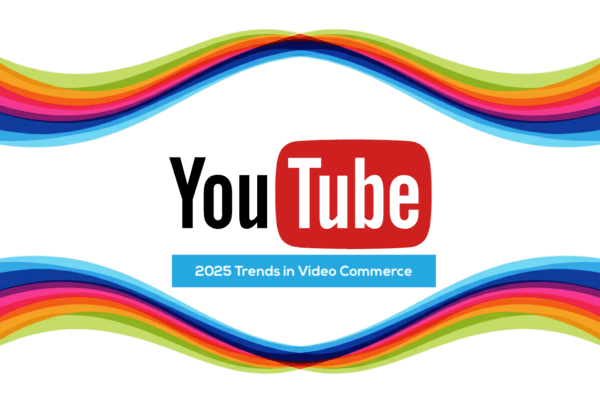Regulators in the EU recently sent a loud message to the industry: gatekeeper rules under the Digital Markets Act are real, and costly. In April Apple and Meta were fined €500M and €200M respectively for violating key provisions of the DMA. MEF CEO Dario Betti explores what happened, why it matters, and what it signals for the mobile and digital ecosystem going forward.
The European Commission issued its first fines under the Digital Markets Act (DMA) at the end of April 2025. The fines mark a significant milestone in the EU’s push to curb perceived digital gatekeeper power. Apple was fined €500 million and Meta €200 million for failing to comply with specific DMA obligations designed to ensure fairer competition and more consumer choice in digital markets.

What is the DMA?
The DMA (Regulation EU 2022/1925) targets “gatekeepers” – large digital platforms that control critical digital ecosystems. Seven companies have been designated to date: Alphabet, Amazon, Apple, Booking, ByteDance, Meta, and Microsoft. These firms face new operational constraints, particularly concerning how they treat third-party businesses and handle user data across platforms.
The fines are the first and they serve as a clear signal that compliance with the DMA is not optional, and that commercial design choices – even longstanding ones – may be judged as anti-competitive if they limit user choice or developer freedom.”
Case 1: Apple’s App Store Steering Restrictions
Apple was found to illegally restrict app developers from steering users to alternative offers outside the App Store.
Key Issues Identified:
- Link-outs allowed but costly: Apple permitted external links but imposed up to 17% commissions on sales made within seven days of a link-out – even when conducted outside the App Store.
- Restrictions on information: Developers could not share price details or promotional offers within apps.
- No embedded web views: Apple only allowed links that open in a separate browser, reducing convenience and visibility for alternative services.
EU Commission’s Findings:
- These practices inhibited competition by making it hard for developers to market cheaper alternatives.
- The Commission found that Apple’s policies violated Article 5(4), which requires gatekeepers to allow developers to communicate and transact freely outside their ecosystem.
Apple has been ordered by the European Union to remove these restrictions within 60 days and ensure future compliance.
Case 2: Meta – Consent or Pay Model
Meta’s controversial “Consent or Pay” model was found to be non-compliant with rules on user data processing and consent. Here is a brief summary of the case:
- Users had two options to access Meta’s products (Facebook and Instagram): free access with personalised ads (and data processing), or ad-free access with a monthly fee (€9.99–€12.99).
- The Commission determined this setup did not offer users a real choice, as the “free” alternative required extensive data sharing.
Commission’s Findings:
- Meta did not provide a data-minimised equivalent of its services for users who declined consent.
- The business model was seen as a way to circumvent genuine consent and entrench Meta’s ad-based dominance.
Although Meta adjusted its model in March 2024, the Commission still issued a €200 million fine for the period of non-compliance.
What Comes Next? Private Enforcement and Lawsuits
These decisions may pave the way for private lawsuits, including:
- Consumer claims (e.g., refunding subscription fees paid under Meta’s model).
- Developer actions (e.g., seeking compensation for lost revenue or high commissions under Apple’s rules).
- Class action-style mechanisms may emerge, particularly in Germany, under new collective redress frameworks.
MEF Perspective: Implications for the Mobile Ecosystem
The fines are the first and they serve as a clear signal that compliance with the DMA is not optional, and that commercial design choices – even longstanding ones – may be judged as anti-competitive if they limit user choice or developer freedom.
For major mobile stakeholders, the actions by the European Union are potentially showing opportunities and challenges:
- Platform providers must revisit monetisation models, especially around app stores and data handling.
- Developers have new legal backing to seek more equitable terms.
- Messaging, identity, and commerce providers may see a shift in dynamics as gatekeepers are forced to open their ecosystems.
This regulatory moment underscores the need for all digital actors – not just gatekeepers – to track how European (and possibly global) enforcement trends may impact platform economics, user data policies, and innovation pathways.
So what is happening in other territories?
- United Kingdom: The UK has been actively developing its own regulatory framework for digital markets, primarily through its Digital Markets Unit (DMU) within the Competition and Markets Authority (CMA). While not identical, the DMU’s powers and objectives, focusing on reining in the power of large tech companies and promoting competition, align with the spirit of the DMA.
- United States: While the US approach tends to be more antitrust-driven and less prescriptive than the EU’s, there has been increasing bipartisan interest in regulating large tech platforms. Various legislative proposals and ongoing antitrust cases touch upon similar themes to the DMA, such as interoperability, data portability, and limiting self-preferencing by dominant platforms.
- Japan: Japan has also shown interest in addressing competition concerns in digital markets and has been exploring new regulations to promote fair competition among digital platforms.
- Australia: Australia has been quite active in digital platform regulation, particularly concerning media bargaining codes and antitrust issues. While not a direct copy, their considerations often overlap with the principles behind the DMA in aiming to address the market power of large tech companies.
- Canada: Canada has also been examining ways to regulate digital platforms and address concerns about market dominance and fair competition.





